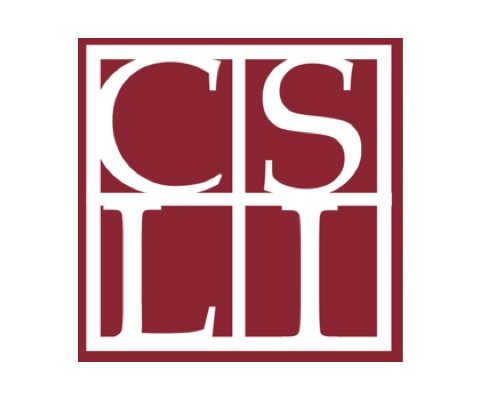Back to series


Questions and Answers From Children About God
Learn more in our Dawn Treader Magazine
 Theodore: Good morning, Douglas. Where are you off to?
Theodore: Good morning, Douglas. Where are you off to?
Douglas: The library. I didn’t expect to meet you here by the church. What are you doing here on a Wednesday?
Theo: I had a prayer meeting with a few friends, and I stayed afterward to be alone for a couple minutes. I like to pray by myself in church sometimes; the quiet surroundings make me feel more reverent and attentive.
Dou: Oh. Well, I wouldn’t know anything about that; I never pray myself.
Theo: Why not, Douglas? Don’t you believe in God?
Dou: Honestly, Theo, I don’t know. I wouldn’t say that I don’t believe in God, because I don’t think it would be honest. It would bother me to go around calling myselfan atheist, as though I could prove His non-existence, which of course I can’t. But I don’t have any way of proving His existence to myself, either. I try not to think about it too much.
Theo: But don’t you think that this is too important of an issue to overlook? I mean, if God does exist, you’re missing out on the most important fact of life by ignoring Him. C.S. Lewis once said: “One must keep on pointing out that Christianity is a statement which, if false, is of no importance, and, if true, of infinite importance. The one thing it cannot be is moderately important” (God in the Dock: Essays on Theology and Ethics). You have to take it or leave it.
Dou: Yes, but what if you want to believe but can’t—I mean, if you can’t find any proof for the existence of a God?
Theo: Before we address this question, do you mind if I ask you another one?
Dou: Go ahead.
 Polly: Are you sure that you can’t find any proof for God’s existence, or that you couldn’t sensibly believe without the exact kind of proof you’re looking for? I just want to make quite sure we understand each other here: you are saying that you would need to materially “sense” God, using at least one of your five senses, in order to prove His existence to yourself?.
Polly: Are you sure that you can’t find any proof for God’s existence, or that you couldn’t sensibly believe without the exact kind of proof you’re looking for? I just want to make quite sure we understand each other here: you are saying that you would need to materially “sense” God, using at least one of your five senses, in order to prove His existence to yourself?.
Dou: I guess that’s what I mean. Don’t you think that makes sense?
Theo: I agree with you, but where do we get this sense of right and wrong? Certainly not because any of us live it out perfectly! There has to be a God, a Judge and Moral Lawgiver Who really knows right from wrong, in order for Him to give us this sense. We could never have developed it on our own. And look around you at the world: how beautiful and complex and glorious it is. Someone very great and powerful and loving must have made it for us — mere unthinking processes of science would not care whether the world was pleasing to us humans or not. And that’s why prayer is so important: we need to thank God for all He has done for us, and because He is the only One Who can do everything best for us, He is the most sensible One to ask to meet our needs.
Dou: Maybe you’re right, but I don’t know how to pray, Theo.
Theo: Well, the best way to start is with the prayer Jesus taught His disciples. Come on into the church with me and I’ll show it to you in the Bible…!
Ask your children
What do they think about Theo’s answers to Douglas’s questions? Do they have any other questions of their own that this dialogue has brought up for them? Challenge them to think up more responses they could give, if someone asked them a question like Douglas’s.
Notes:
1 Charles Dickens, A Christmas Carol, Heirloom ed., retold by Jane Parker Resnick (Philadelphia: Running Press Book Publishers, 2002), p.12.
2 C.S. Lewis, Mere Christianity, (New York: Touchstone, 1996), p. 132
C.S. Lewis Institute
Author
C.S. Lewis Institute, in the legacy of C.S. Lewis, works to develop wholehearted disciples of Jesus Christ who will articulate, defend, share, and live their faith in personal and public life. Founded in 1976 by Dr. James Houston and James R. Hiskey, the Institute provides leading teachers who address important issues of the day from the perspective of Biblical orthodoxy, while also providing discipleship for individuals in small groups.

 COPYRIGHT: This publication is published by C.S. Lewis Institute; 8001 Braddock Road, Suite 301; Springfield, VA 22151. Portions of the publication may be reproduced for noncommercial, local church or ministry use without prior permission. Electronic copies of the PDF files may be duplicated and transmitted via e-mail for personal and church use. Articles may not be modified without prior written permission of the Institute. For questions, contact the Institute: 703.914.5602 or email us.
COPYRIGHT: This publication is published by C.S. Lewis Institute; 8001 Braddock Road, Suite 301; Springfield, VA 22151. Portions of the publication may be reproduced for noncommercial, local church or ministry use without prior permission. Electronic copies of the PDF files may be duplicated and transmitted via e-mail for personal and church use. Articles may not be modified without prior written permission of the Institute. For questions, contact the Institute: 703.914.5602 or email us.
Speakers

C.S. Lewis Institute
Author
Team Members
C.S. Lewis Institute
Author
C.S. Lewis Institute, in the legacy of C.S. Lewis, works to develop wholehearted disciples of Jesus Christ who will articulate, defend, share, and live their faith in personal and public life. Founded in 1976 by Dr. James Houston and James R. Hiskey, the Institute provides leading teachers who address important issues of the day from the perspective of Biblical orthodoxy, while also providing discipleship for individuals in small groups.


